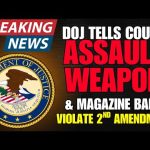Jimmy Kimmel’s controversial remarks following the tragic murder of Charlie Kirk have thrust him into the center of a firestorm over media accountability and political speech. During his monologue, Kimmel suggested the “MAGA gang” was trying to distance itself from the shooter, Tyler Robinson, igniting outrage among conservatives who saw his comments as insensitive and implicitly excusing violence against right-wing figures. The backlash was swift and pronounced—FCC Chairman Brendan Carr intervened, leveraging public and regulatory pressure on ABC to take action.
Carr appeared on Benny Johnson’s show, calling for Kimmel’s suspension and urging affiliate stations to reconsider airing “Jimmy Kimmel Live.” Nexstar, the country’s largest station group, soon halted broadcasts of Kimmel’s show to millions of households, a move echoed by Sinclair. The decision by ABC and Disney to suspend Kimmel indefinitely was framed by supporters not as “cancel culture,” but as consequence culture—a principled stance against broadcasting content deemed ethically objectionable. This development was widely celebrated in conservative circles, including by President Trump, who declared it a “great day for America” and called out the poor ratings of other liberal late-night hosts.
The controversy quickly illuminated the profound double standard in media responses to political violence. Conservatives pointed out that right-leaning figures always condemn violence, regardless of motive, while liberal media sometimes appear to rationalize or downplay it when it targets conservatives. Kimmel’s suspension brought this inconsistency to light, prompting lawmakers and pundits to debate the need for holding all sides equally accountable.
Carr’s proactive stance reshaped the “Great Kimmel Conundrum” as a test of whether consequence—and not censorship—should guide networks in their programming decisions. He underscored that broadcast television carries a “public interest” standard under federal law, justifying affiliates’ rights to choose content that aligns with their communities’ values. Critics, however, cautioned that political maneuvering through the FCC could set dangerous precedents for speech regulation—concerns voiced by bipartisan figures including Senators Ted Cruz and Rand Paul.
Ultimately, the episode spotlighted the nation’s ongoing battle over political bias, media ethics, and the real consequences of public speech. The swift and coordinated response to Kimmel’s remarks sent a clear message: public figures are answerable for their words, and when ethical lines are crossed, networks and the market can—and will—respond accordingly. The Kimmel saga is a reminder that the stories told on air have impact and, in today’s world, accountability is more than overdue.




